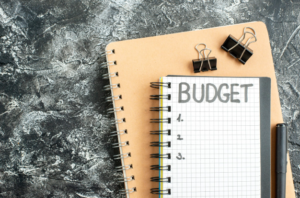
How to Track Expenses in 3 Easy Steps and Not Fail at Budgeting Again
Keeping track of your expenses is essential to managing your money. Many people find it difficult to create a budget because they are either terrified by it or don’t know where to begin. But what if you were told that it could be easy and simple to keep track of your spending? In this blog, we’ll look at a three-step method for tracking expenses in a simple and effective way. This method is made to blend in with your everyday routine and assist you in managing your money without feeling burdened. These steps will help you manage your finances more effectively, regardless of your experience level.
Step 1: Choose Your Budgeting Tool
Choosing the appropriate budgeting tool is the first step towards keeping track of your expenses. There are numerous options available, such as notebooks, spreadsheets, and apps. The key is to choose a tool that you are comfortable with.
An app for budgeting might be your best option if you’re tech-savvy. These apps usually have built-in features like automatic expense classification and reminders. If you’re more of a hands-on person, a notebook or spreadsheet can work just as well. It all depends on what suits you.
After you’ve decided on a tool, spend some time working on it. Make sure the layout of your notebooks or spreadsheets is simple for you to update and review.
Step 2: Categorize Your Expenses
This is where you’ll begin to see where your money is going. Generally speaking, there are three types of expenses: fixed, variable, and discretionary. Rent or mortgage payments are examples of fixed expenses. Certain expenses, like groceries or utility bills, are variable. Discretionary expenses are non-essentials such as dining out or entertainment.
This is an important step because it assists you in determining where you might be able to make savings. Sort your expenses into these categories by first taking a look at your previous month’s spending. You can always change the categories as you go, so don’t stress about getting it perfect. When you have a clear grasp of your spending habits, you are better equipped to manage your finances.
Step 3: Regularly Monitor and Adjust Your Budget

The key to the last step is consistency. It is important to keep track of your expenses regularly to stay on track with your budget. Every week, set aside a specific time to review your spending. For instance, this could be as simple as a weekly Sunday night check-in lasting 15 minutes. Review your spending categories and add any new expenses to your budgeting tool during these sessions. Do you spend too much money in one place? Does your budget need to be modified for the upcoming month? These frequent check-ins assist you in maintaining accountability and implementing changes on time.
Be Flexible
It’s very important to understand that your budget isn’t set in stone. Your budget should be flexible enough to take into account life’s changes. Modify your budget based on your income or unforeseen expenses. The key to successful budgeting is to adapt to your current financial situation while preserving your long-term financial goals.
It will become less of a chore and more intuitive to manage your money with consistent monitoring and adjustments. To avoid making budgeting feel burdensome or restrictive, keep in mind that the idea is to make it an organic part of your life.
Overcoming Common Challenges
Budgeting and keeping track of spending can be challenging, even with a well-thought-out plan. One common problem is failing to keep track of little purchases. Develop the habit of promptly entering expenses into your budgeting tool to take control.
A further common mistake is underestimating costs. This usually occurs when expenses like groceries or gas are variable. To avoid this, slightly overestimate these expenses in your budget. This lowers the possibility of overspending in these categories and provides you with a buffer.
Maintaining motivation can also be difficult. Keep in mind that the goal of a budget is to make sure you’re spending money on the things that are really important to you rather than to restrict your enjoyment.
Bottom Line

To take charge of your finances, you can’t escape budgeting. However, it’s possible that you’ve tried your best and you’re still falling short. The reason could be that you have multiple debts and you always have too little to carry you until your next paycheck. You don’t have to keep living from paycheck to paycheck, while still managing a mountain of debt. You can speak with one of our debt experts at EmpireOne Credit. Your debt can be reduced by up to 80%, and interest will stop immediately. Call us at (416) 900-2324 to schedule a free consultation with us. Being debt-free feels good!





